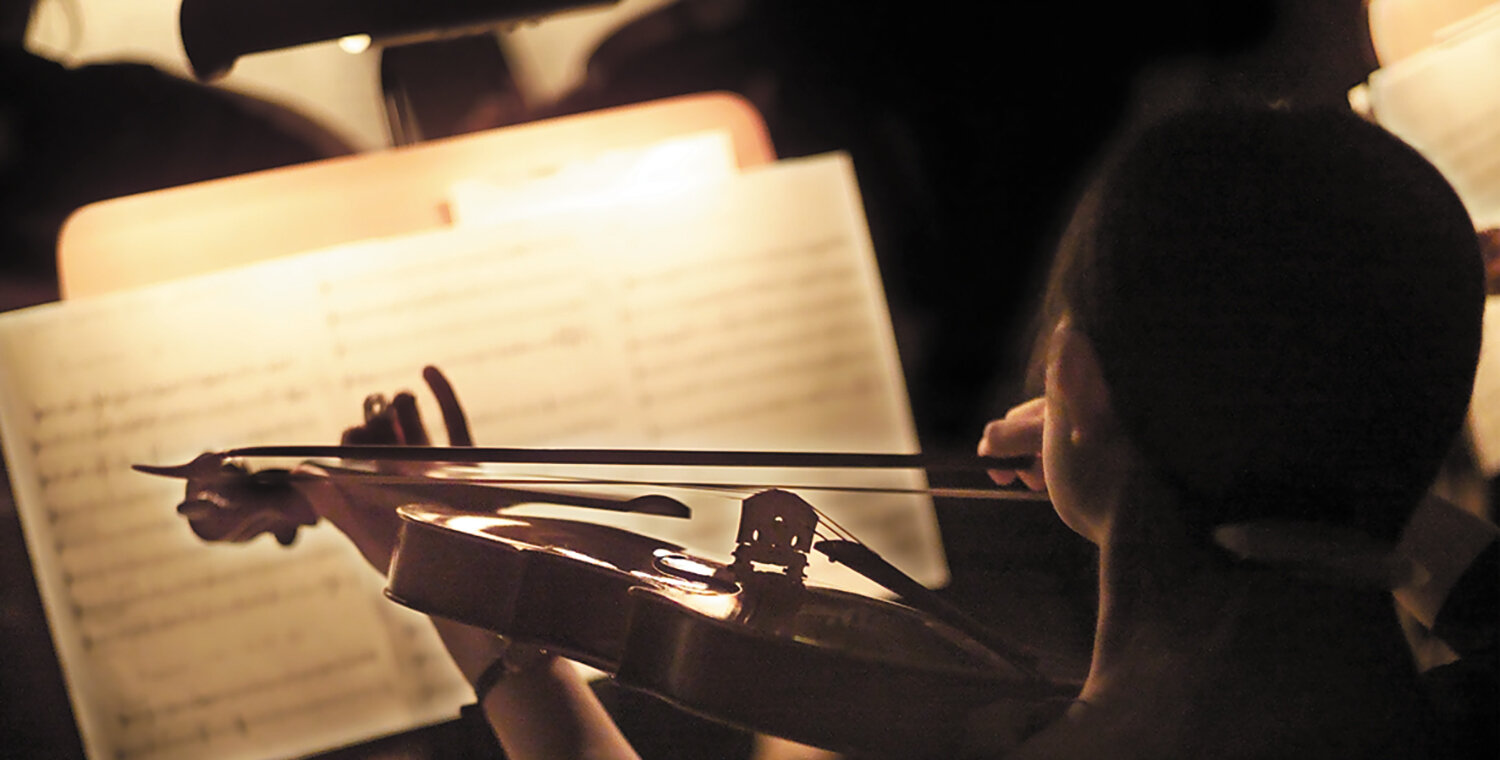
Institute for Performance Practice - Expertise since 1992
Since 1992, the Institute for Performance Practice (formerly known as the Institute for Early Music) has be considered among the leading international centers of expertise in the area of historical interpretation practice of music from the Middle Ages to the Romantic era. One basic idea stands in the foreground of all activities and affects the Baroque era and also later period: Music is emotion and language at the same time. Clarity and distinctness exist in the same line with affect and clear diction, while architecture and rhetoric form the outer frame for a musical languagem which has little to do with schematics and conformity, but nourished from a colorful and undogmatic way of thinking. A fascinating prism of variation and differentiation arises from this.
Vivaldi Meets Early Music Platform
The Baroque orchestra of the Trossingen University of Music performs Antonio Vivaldi's Concerto for Violoncello, Strings, and basso continuo in D minor, RV 407
Soloist: Gian-Andri Cuonz, Baroque cello | Artistic Direction: Prof. Anton Steck (recorded on April 8th, 2021)
The ensemble could also be heard at the gala concert as part of the Early Music Platform and at the
20th anniversary of the Baden-Württemberg Foundation in Stuttgart.
Music is Emotion and Language
These main ideas control the main subject offerings, which extend from Bachelor and Master's programs up to Konzertexamen, the so-called third cycle. Especially with the four-year bachelor's degree, the accompanying theoretical courses lay a foundation that enables in-depth studies and thus clearly stands out from a trial course.Some programs are internationally unique: In addition to the usual major studies, there is, for example, a master in "Ensemble Direction Early Music" or a master in "Concertmaster/Primarius."
Because of the unique teacher configuration in Trossingen, a new Bachelor's program was launched that enables students to simultaneously and almost equally study historical and modern instruments.
A corresponding master's program is in the works and should be set up soon. Through these diverse course offerings, the Trossingen University of Music, with its Institute for Performance Practice is particularly distinguished.
An important pillar of the institute are the regular ensemble and orchestra concerts. The University has two large Early Music Ensembles: The 17th Century Ensemble and the Baroque Orchestra. Here, new ideas are experimented, tried out, developed, other ideas are even thrown out - everything with one great goal: to involve the listeners in a living process and allow them to partake in the development! Since source-related work inevitably leads to new and different results with every artist and every concert, every concert is unique.This procedure is therefore diametrically opposed to a conservationist idea. Therefore, Early Music is not old at all, but arises anew each time! This is also the reason, why there is no fear of contact with the modern world: Collaborations with the State Center always ensure exciting and well-regarded projects. The participants wander through completely different periods of time: from Bassano to Biber, from Bach to Beethoven to Brahms!
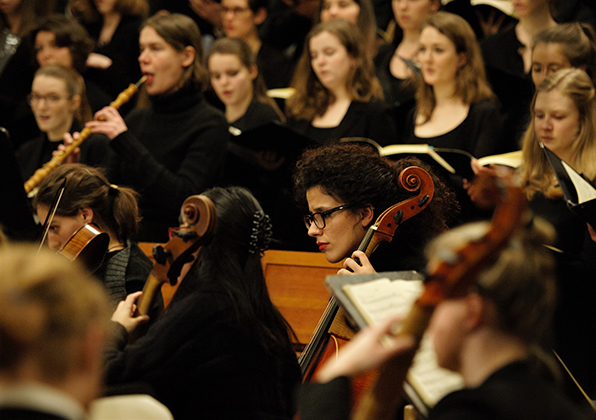
Baroque Orchestra
Baroque orchestra has a central function in Early Music education: Following the pedagogical guiding principle of optimally preparing students for future work, the focus is not only on solo and chamber music skills, but also on orchestral literature. Professional competence in historical performance practice in orchestra is continously developed. For this purpose, as many genres as possible are worked on in alternation. Mastery of technique and expertise in historically informed performance practice stand equally in the foreground. The realization of the ideal of an overall sound means a group effort, which sometimes demands restraint, a high degree of flexibility and at the same time dedication from the individual. The blending ability of one's own sound with other instruments and colors, quick reactions to changing acoustics or breathing along within a phrase when working with soloists are taught and trained in the intensive work phases. This working process enables the students to later lead ensembles independently and distinguishes the Trossingen Baroque Orchestra.
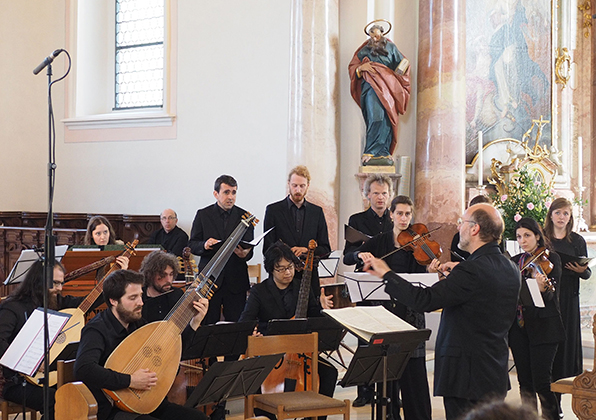
17th Century Ensemble
The 17th Century Ensemble represents the forum for larger ensemble works with singers and scene from the period of around 1580 to around 1700. Here, madrigals, canzonas, masses, masqus, motets, consorts, lied, musical comedy, oratorios, and operas are worked on in theory and practice. The basis of the Ensemble is formed by the weekly courses Consort, Selected Chapters of 17th Century Music, Diminution, Early Music Vocal Ensemble, Basso Continuo, and Improvisation based on Historical Models. The skills acquired there focus on one to two large concert programs per semester with multiple concertos. Free stage forms of the 17th century, such as masque, improvisation, intermedio, and commedia offer numerous points of contact to develop new concert forms or to integrate other art movements. Various crossover projects take place, such as the project "Silk.Road.Music - Kinship of the Soul."
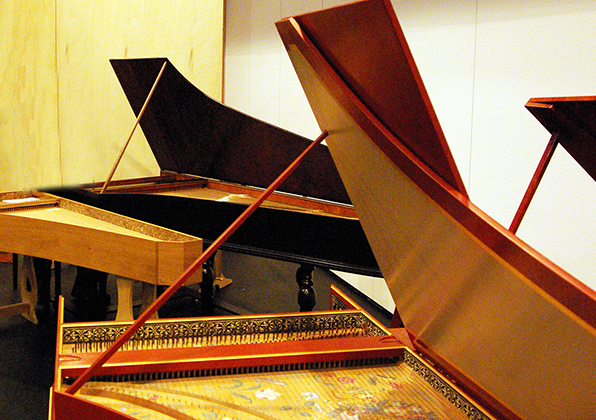
Our Extensive Instrument Collection
The Institute for Performance Practice has an excellent instrument inventory. Among them, you can find highlights such as an Antegnati Organ (16th century) and the Johann Andreas Silbermann replica organ from 1752 in the Benedictiner Church in nearby Villingen. Many harpischords based on French, Flemish, German and Italian models, fortepianos, clavichords, and other valuable historical instruments, such as lutes, violins, violas da gamba, tranverse flutes, oboes, clarinets, horns, trumpets, cornets, dulcians, trombones, and special instruments from the Middle Ages are available in the Institute. In addition, the university library has valuable holdings on Early Music. Relevant musicological literature, writings on theory and performance practice can be found along with sheet music and the facsimile editions essential for studying the sources. A microfilm archive contains primarily older music theory writings and a pool of numerous, very rare instrumental textbooks.
Contact
Get in contact with the Institute for Performance Practice:
Prof. Werner Matzke (Institute Leader)
Prof. Marieke Spaans (Deputy)
Administrative Rules and Usage Regulations
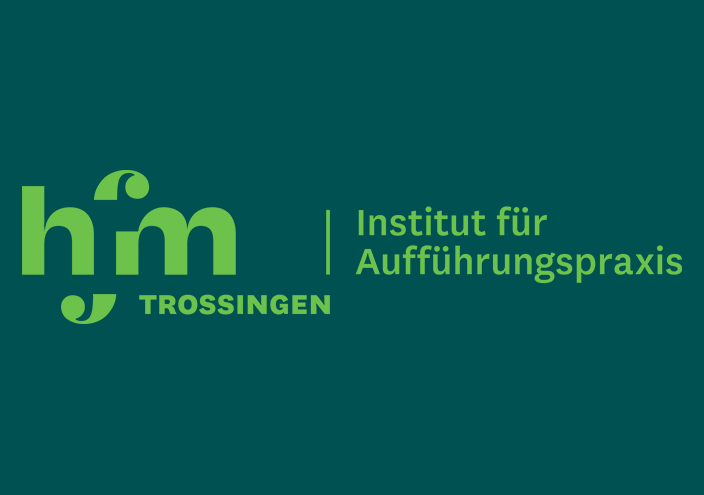
Institute for Performance Practice
Staatliche Hochschule für Musik
Schultheiß-Koch-Platz 3
78647 Trossingen
(Alternatively can be written as "Staatliche Hochschule fuer Musik" and "Schultheiss-Koch-Platz)
Telephone: +49 7425/94910
